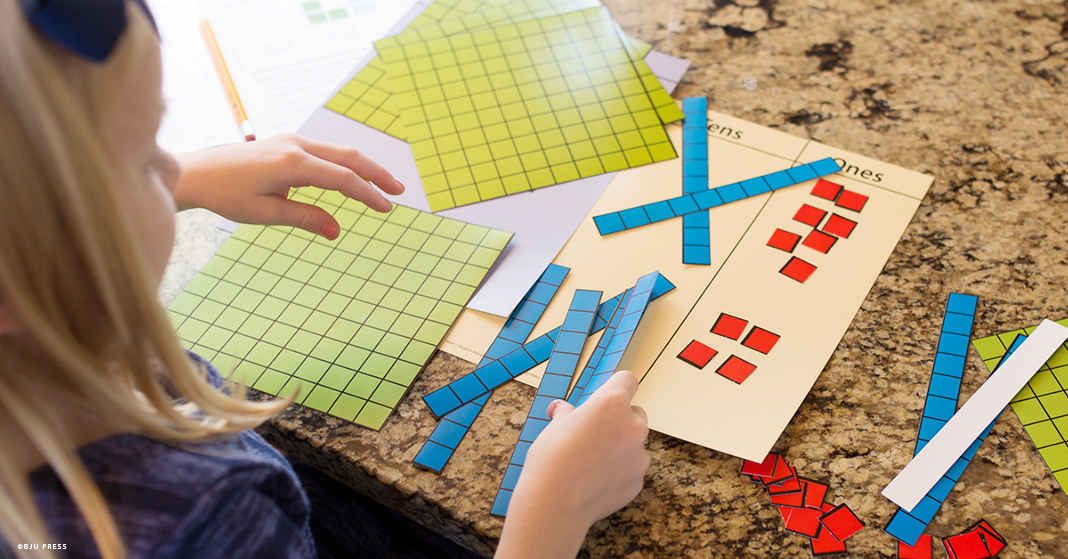
When most of us think back to our experiences with math, we think of endless speed drills and a driving need to get the right answer. As a child, you may have wondered how memorizing formulas was going to help you understand math, and now it’s the same with your children.
You may feel like teaching your children to understand math is some kind of grand undertaking or incredible journey. Looking at it that way can be overwhelming. Where do you begin? How do you keep going? Maybe there’s a different way of achieving math comprehension?
As adults, we often remind ourselves to take everything one step at a time, and that’s probably some of the best advice, but what are the first steps of an approach that teaches your children to comprehend math rather than just memorizing meaningless facts?
1. Connecting numbers to tangible ideas
In and of themselves, numbers are abstract and nebulous. In order to ground number concepts in the real world for your children, you can use manipulatives. The manipulatives can be objects you use every day or the specially designed manipulatives found in the BJU Press elementary math curriculum. This physical understanding of numbers—or number sense—brings math comprehension into your children’s grasp.
2. Building a foundation for future learning
This step is two-fold. Once your children have made strong connections between the abstract concept of numbers and real objects, they’ll need to visualize the processes they’re using so that they remember that numbers mean something. In order to make sure that your children are visualizing math, try asking them questions that encourage them to think about their processes and how math works with real objects.
3. Expanding math comprehension
For math comprehension to grow deeper, it’s important that your children understand base ten math. You and I use base ten every time we break numbers into columns of thousands, hundreds, tens, ones, and so on. Making sure your children understand the concept of base ten math will make grasping the more difficult math processes easier for them.
4. Reaching real-world application
Learning comes full circle to the real purpose of math—a tool to assist us in wisely stewarding God’s creation to serve others—when it begins to reach real-world situations. The skills your children learned during carefully prepared lessons and activities will come into play naturally in real-world situations, such as grocery shopping. These life skills develop as a result of how well they understand math, not because of how well they do speed drills or what grade they make on a test.
Notice how each step after the first relies heavily on connecting numbers back to the real world in some way? As important as all the subsequent steps are, the first is still the key to really comprehending math.
As an ancient Chinese philosopher once wrote, “A journey of a thousand miles begins with a single step.” Once you make strong connections between abstract numbers and tangible objects, the other steps will begin to feel more natural.
Leave a Reply